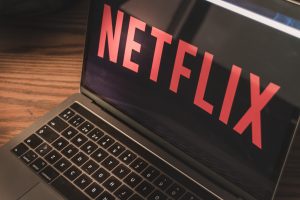On October 2, President Ferdinand Marcos Jr. signed into law Republic Act 112023, thereby introducing a 12 percent value-added tax (VAT) on digital services. This law addresses a legal gap that previously exempted non-resident streaming companies from paying VAT on services consumed within the country. Because of RA112023, platforms like Netflix and HBO are now required to adhere to the same tax regulations as local providers such as iWantTFC and Vivamax. Proponents of the new law estimate that the VAT could generate an additional PHP 83.8 billion ($1.49 billion) in revenue between 2024 and 2028, supporting government infrastructure and social projects.
While this law aims to create a level playing field, however, it may produce unintended consequences that significantly offset the desired revenue growth. Foreign providers like HBO and Netflix, which currently offer some of the most affordable subscription rates in Southeast Asia, with monthly fees as low as PHP 199 ($3.54) and PHP 395 ($7.03) respectively, may well increase their subscription prices to offset the new tax burden. Such increases, in turn, could substantially reduce the numbers of paid subscribers, thus undermining the generation of additional revenue, as Filipino consumers simply turn more and more to pirated content.
A broad consensus supports the objectives of RA112023. The imposition of the VAT on foreign digital service providers aligns with international trends aimed at taxing digital services in the places where they are consumed. More specifically, it builds on regulations formed in response to the Aces Philippines Cellular Satellite Corp. vs. Commissioner of Internal Revenue case (G.R. No. 226680, August 30, 2022). In that case, the Supreme Court ruled that income generated from services provided in the Philippines—despite being delivered by foreign entities—was still subject to local taxes. The court determined that critical components of these services, such as the use of gateway facilities within the country, justified the imposition of taxes on the income earned. This precedent reinforces the principle of the “benefits-received theory,” where the jurisdiction that provides the essential services for income generation has the right to tax that income.
Revenue Memorandum Circular (RMC) No. 5-2024 further strengthens this principle by clarifying that cross-border services provided to Philippine companies are subject to VAT and final withholding tax, even if the provider is based outside the country. This means that companies like HBO and Netflix will not only have to comply with new VAT regulations but also withhold tax obligations when providing services to Filipino consumers.
Nevertheless, to further the objectives of RA112023, the Philippine government needs to ramp up its battle against piracy. According to a recent survey, seven in ten Filipinos consume pirated content, and higher subscription fees would most likely push even more of them in that direction. The Asia Video Industry Association’s Coalition Against Piracy, which includes HBO, Disney and Fox as members, has highlighted the seriousness of this issue. Alongside lawmakers including senators Jinggoy Estrada and Ramon Revilla Jr. and House Representative Joey Salceda, they are advocating for amendments to the Philippines’ Intellectual Property (IP) Code, including one that would require site-blocking measures that could help curb the prevalence of pirated content online.
The government has recognized the urgency of addressing the country’s high piracy rates. In July, Trade and Industry Secretary Alfredo Pascual announced plans to amend the IP Code in order to enhance the Intellectual Property Office of the Philippines (IPOPHL)’s ability to block websites that engage in piracy. This move aims to protect creative industries hit hard by illegal content sharing, especially since the COVID-19 pandemic. Senate Bills 2150 and 2385, in parallel with House Bill 7300, further this initiative by expanding IPOPHL’s authority to collaborate with internet service providers in blocking infringing websites and imposing fines of up to PHP 1 million ($18,000) for violations. Without the implementation of these laws, the combination of rising costs and prevalence of pirated content could pose a significant challenge for streaming companies looking to maintain their already dwindling subscriber base.
While the new law aims to create a more equitable tax system for digital services, it also poses new challenges for the government, service providers and consumers. Streaming companies will need to balance compliance with these new tax regulations against the risk of losing subscribers to piracy, particularly in a market where affordability and competition are demonstrated key factors. Implementation of amendments to the Philippines’ IP Code is crucial to ensuring that the country’s digital content market remains sustainable in the face of rising costs.

































